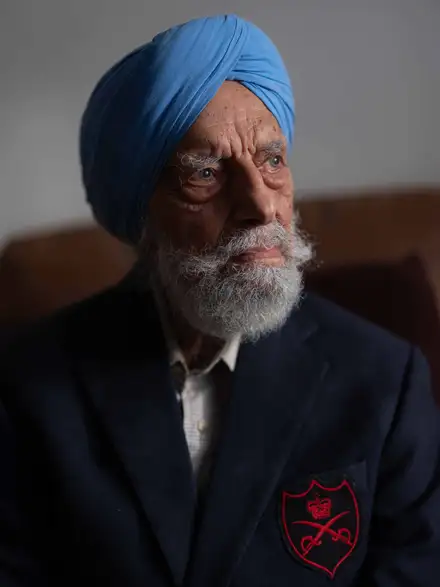When the Imperial Japanese Army launched operation U-Go across the border into north-east India in March 1944, their aim was to capture two major strongpoints, Kohima and Imphal. At Imphal, the men of the Fourteenth Army, 85% of whom hailed from pre-partition India, courageously held off repeated attacks for months. All told, some 2,000 would fall in the town's defence.
To the north, at the hill village of Kohima, a small British and Indian garrison of around 2,500 troops were encircled by a numerically superior enemy in an intense close-quarters fight. Conditions were horrific. Water was scarce, mortar and sniper fire relentless and sleep almost impossible. Over the course of 14 days of bitter siege, the defenders held off a staggering 25 Japanese attacks, many in hand-to-hand combat.
Eventually in mid-April Indian troops began to relieve the defenders. The Japanese encirclement was broken and the allies began to drive them from their positions. Amongst those liberators was Havildar Major Rajindar Singh Dhatt. Originally from the Punjab region, Rajindar was appointed to the Royal Indian Army Service Corps and was promoted to Havildar Major (Sergeant Major) in 1943 before he was drafted to the Far East campaign:

“The Japanese were all around Kohima and Imphal and they had circled our two divisions, one Indian division and one British division.
“There was one British Lieutenant, he came to us and he said, ‘you are in a theatre of war’. We were laughing, a theatre… we were thinking that it was a film or something. It was then after that that he said, ‘we will defeat them.’ He gave us a lecture like that.
“I stood up and said that we Sikhs we’re not afraid of fighting. It doesn’t matter, we came here to fight and we will do that.”
Close and bitter fighting continued into May as both sides attacked and counter attacked. After three months, by June 1944, with more than 7,000 casualties and almost no food supplies left, the Japanese retreated with British-Indian forces in pursuit. On 22 June the 5th Indian Division and British 2nd Division met up, so ending the Battle of Kohima and the siege of Imphal. Now supplies could get to Imphal, but fighting continued with Imphal still under attack until the start of July, when the Japanese forces received their official approval to retreat to Burma.
The resounding defeat of Japanese forces at Kohima and Imphal was a turning point in the war and the springboard for the later allied liberation of Burma, in which Rajindar saw service. After the war, in 1963, Rajindar emigrated to the UK.


